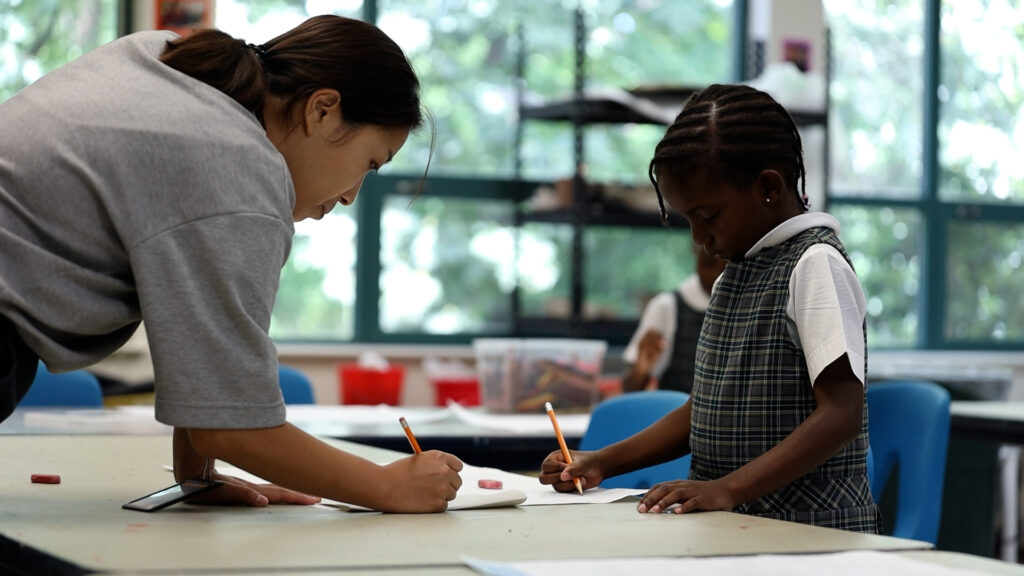Showing Up with Integrity, Online and in Life
Social and Emotional Learning (SEL) is the process of developing self-awareness, self-control, and other skills vital for school, work, and life success. SEL is imperative in all aspects of life. Social and emotional learning increases academic achievement and positive behavior among students.
The five major components of SEL are:
- Social awareness
- Self-awareness
- Self-management
- Responsible decision-making
- Relationship skills
According to the Collaborative for Academic, Social, and Emotional Learning (CASEL), social and emotional learning has many positive outcomes for students, schools, and communities. SEL allows students to develop skills beyond academics. It gives them the ability to thrive in both a school and community. SEL equips students with skills to navigate life.
Through SEL, students gain confidence and greater awareness of the world around them. It allows them to cultivate and nurture productive relationships. Research shows that, as students strengthen their SEL skills, they demonstrate healthier relationships with others. SEL increases positive behaviors, such as kindness and empathy. In addition to increasing positive behaviors among students, SEL contributes to academic success.
Social and emotional learning enables students to:
- Understand and manage themselves
- Understand the perspectives of others and relate effectively with them
- Make good choices and decisions
Social and Emotional Learning Inside and Outside of the Classroom
Developing self-awareness teaches children how to navigate difficult situations. Whether they are taking a test or managing everyday life stressors, students need these skills. And skills like empathy and self-control aren’t just limited to the classroom or school environment.
According to CASEL, students exposed to SEL have higher levels of “school functioning.” This includes better test scores, greater homework completion, better attendance, and better grades.
With social and emotional learning, students report a healthier well-being. They experience less stress and less emotional distress. Students also have a greater chance of positivity towards themselves and others. This also creates a safer school environment.
Through SEL, students understand how to be responsible decision-makers, inclusive of others’ diverse backgrounds, better students, and honorable citizens of a community.
Social and Emotional Learning Activities
Social awareness, relationship skills, and responsible decision-making are all part of social and emotional learning. Students practice these skills in and out of the classroom through SEL activities. Through social and emotional learning activities, students can strengthen their SEL development.
Examples of social and emotional learning activities include:
- Journaling
- Daily greetings
- Reflection
- Positive affirmations
- Collaborative art or group projects
- Team-building group activities
- Frequent goal reevaluation
Social and emotional learning activities involve reflection and intention. Activities that strengthen SEL allow children to exercise mindfulness. Through this, students can increase their academic achievement, school performance, and overall mental well-being.
Through SEL activities, children work through their emotions. They are aware of goals and progress. SEL activities also allow children to develop meaningful relationships with others.
The Importance of Social and Emotional Learning
Highlighting social and emotional learning allows students to become better and more mindful learners. As research continuously shows, SEL is more than just important; it’s imperative.
The impacts of SEL in the classroom:
- SEL is associated with improvements in students’ academic progress in the classroom.
- Students who receive SEL instruction are reported to have more positive attitudes about school and improved scores on standardized achievement.
- SEL instruction teaches students how to learn in collaboration with their teachers and peers.
The impacts of SEL for lifelong learners:
- SEL prepares students for success as adults.
- SEL teaches students to communicate better, cooperate, and lead.
- SEL teaches students important skills to excel in the workplace and the future.
Social and Emotional Learning For Life
The importance of social and emotional learning expands across all ages and grade levels. While it begins as early as preschool, its effects transcend into adolescence and adulthood. Increased SEL skills contribute to positive lifetime outcomes up to 18 years later.
Young learners are taught the importance of SEL through independence, interactive play, positive social behavior, and processing difficult emotions.
Social and emotional learning expands into the online space, as well. Emphasis on integrity and responsible decision-making is of the utmost importance both in the classroom, out of the classroom, and online.
Looking for a School that Values Social and Emotional Learning?
Find out if Westminster School is the right choice for your family. Contact us today with questions or to set up a tour.


